Audio not working on Dell laptop problems can be confusing and many Dell users have faced the same issue. In this article, you will learn the most common reasons why Dell laptops and desktops lose sound. We will also provide 7 proven fixes that can help bring your audio back.
Table of Contents
-
- Fix 1. Check Basic Audio Settings
- Fix 2. Update or Reinstall Dell Audio Drivers
- Fix 3. Run Windows Built-in Troubleshooter
- Fix 4. Restart or Reset Windows Audio Services
- Fix 5. Adjust Sound Enhancements & Output Format
- Fix 6. Check External Devices and Connections
- Fix 7. Reset BIOS or Perform System Update
Part 1: Why Is the Audio Not Working on Your Dell Laptop?
When your Dell laptop’s sound is not working, the cause isn’t always obvious. Sometimes it’s a quick setting issue, while other times it could be linked to drivers or even hardware. Here are the common reasons:
- Fixes corrupted files. Restores audio that is silent, distorted, or won’t open.
- Supports multiple formats. Works with MP3, WAV, AAC, FLAC, and many others.
- Keeps original quality. Repairs files without lowering sound clarity.
- Preview before saving. Allows you to check the repaired audio before finalizing.
Part 2: Dell Computer vs Dell Laptop Audio Issues
Before jumping into solutions, it’s helpful to separate laptop and desktop audio problems. While both Dell computers can face similar issues, there are some key differences.
A Dell laptop usually comes with built-in speakers. That means if the internal speakers fail, the whole sound system might stop working unless you connect headphones or external speakers.
On the other hand, Dell desktops depend entirely on external devices for audio output. If speakers aren’t plugged in or are damaged, the computer itself may still be fine but you won’t hear anything.
Because of this difference, troubleshooting sound on a Dell laptop often focuses on internal drivers, settings, and built-in hardware, while Dell desktops require you to also check external connections and speaker quality.
Part 3: 7 Proven Fixes for Dell Laptop Sound Not Working
So, how do you bring your Dell laptop’s sound back? Here are 7 fixes for audio not working on Dell laptop problem that actually work:
Fix 1. Check Basic Audio Settings
It may sound obvious, but audio problems often come from simple settings. If the volume is too low, the sound is muted, or the wrong playback device is selected, you won’t hear anything. Sometimes switching between headphones and built-in speakers can cause the laptop to choose the wrong output device.
A quick check of your audio settings can rule out this problem before moving to more technical solutions.
Step 1. Click the speaker icon on the taskbar and make sure the volume isn’t muted or set too low.
Step 2. Right-click the speaker icon and select Sound settings.
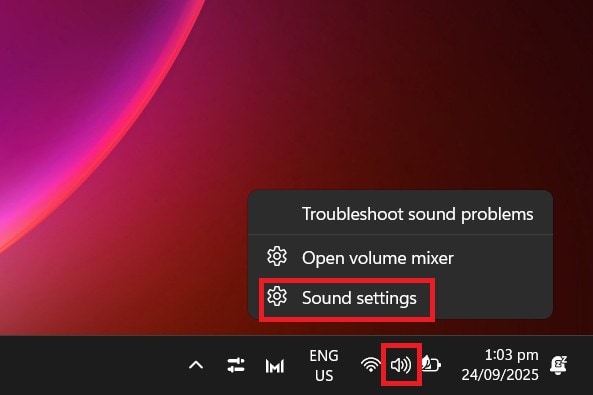
Step 3. Under Choose where to play sound, make sure the correct speaker or headphone option is selected.
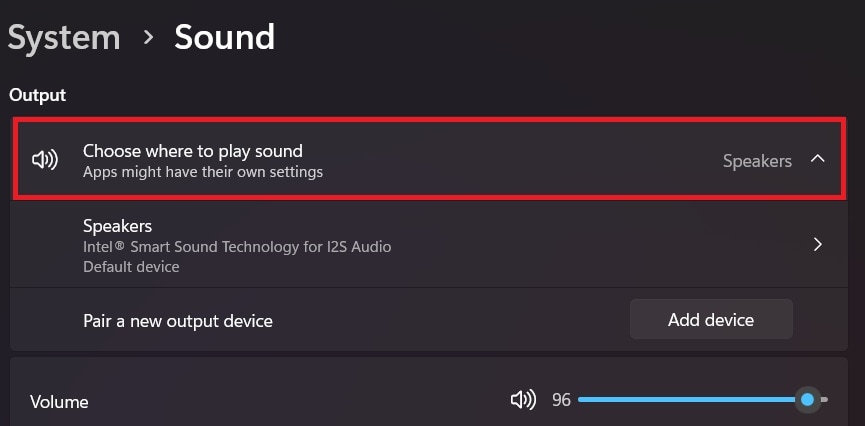
Step 4. Test the sound by playing a sample audio or system sound.
Fix 2. Update or Reinstall Dell Audio Drivers
Drivers act like translators between your operating system and your sound hardware. If they’re outdated or corrupted, your Dell laptop won’t know how to handle audio correctly. Updating or reinstalling them can restore proper communication and bring your sound back.
This fix is especially important after a Windows update, which may have replaced or disrupted your existing drivers.
Step 1. Press Windows + X and select Device Manager.
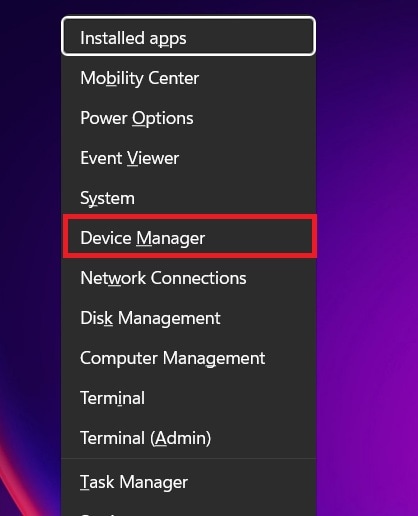
Step 2. Expand the Sound, video and game controllers section. Right-click your audio device and choose Update driver.
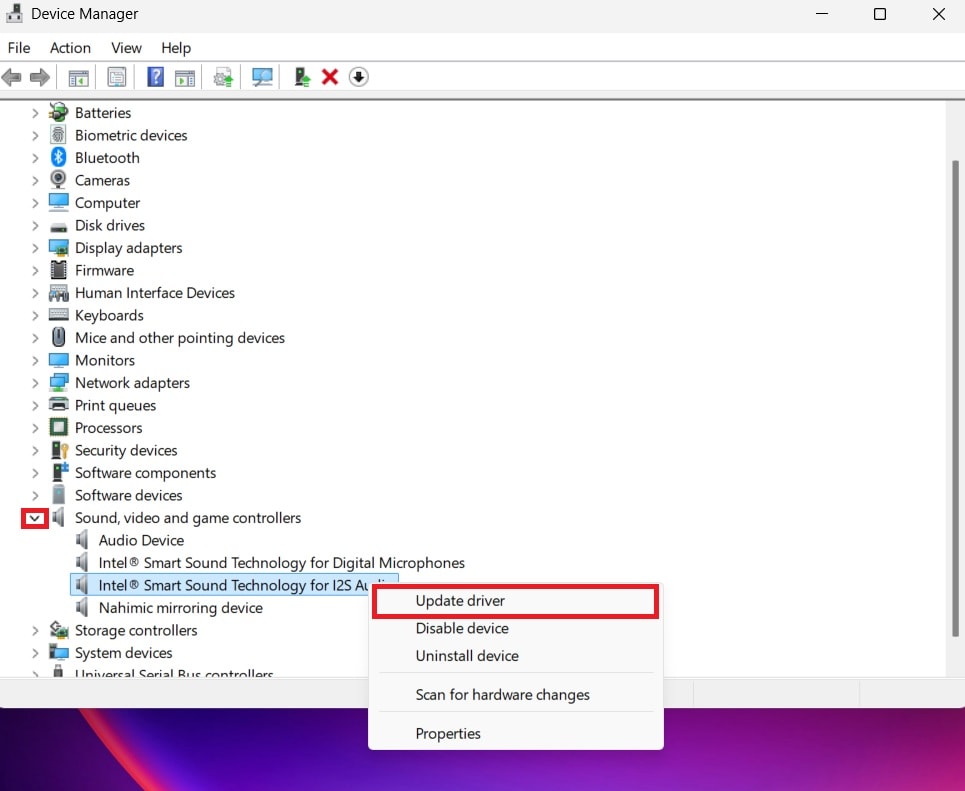
Step 3. Pick Search automatically for drivers.
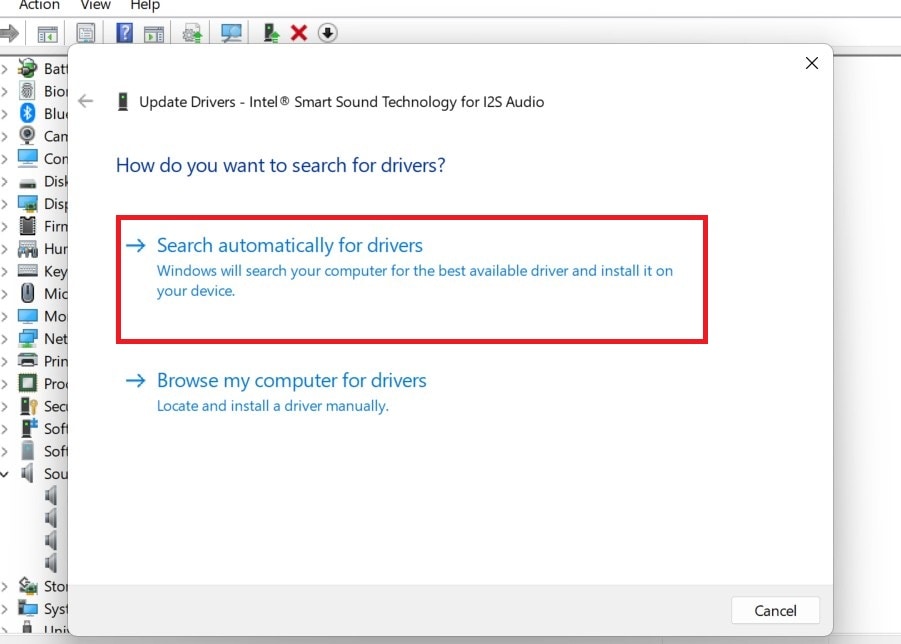
Step 4. If updating doesn’t work, right-click the device and select Uninstall device, then restart your laptop to reinstall drivers automatically.
Fix 3. Run Windows Built-in Troubleshooter
Sometimes the fastest way to find the root of the issue is to let Windows check for you. The built-in troubleshooter scans your system for common sound problems and automatically applies fixes if possible. While it may not solve every issue, it’s a quick and reliable step that often clears up minor glitches.
Step 1. Open your Settings.
Step 2. Go to System and choose Troubleshoot.
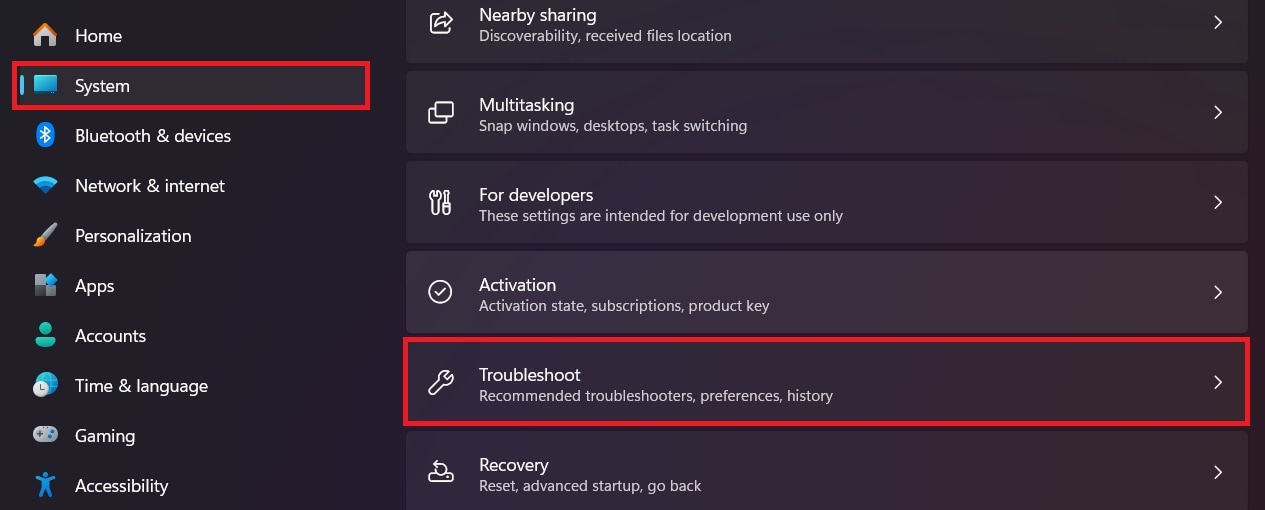
Step 3. Select Additional troubleshooters or Other troubleshooters in Windows 11.
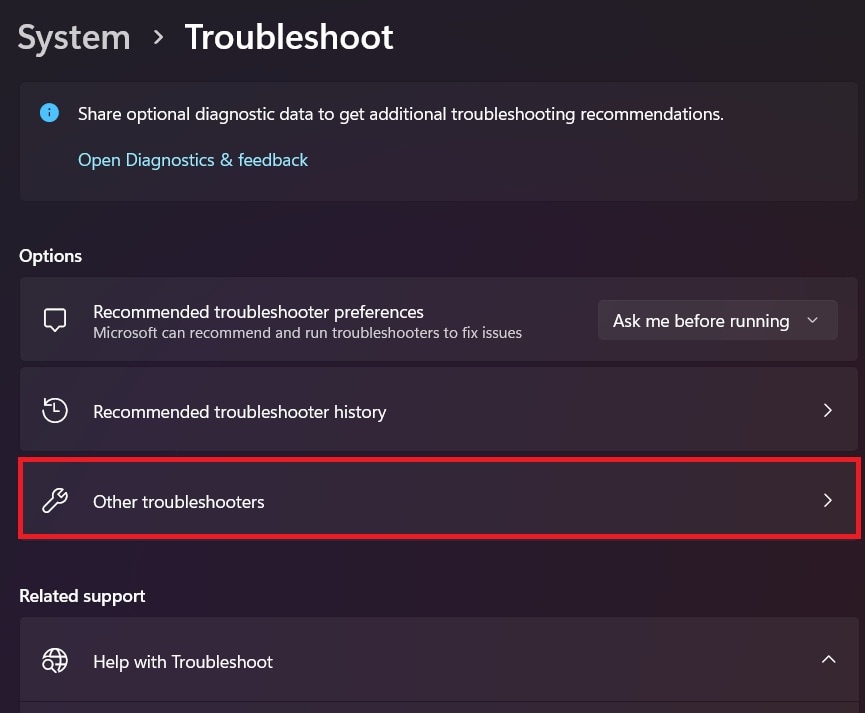
Step 4. Click Run beside the Audio and follow the instructions and apply any recommended fixes.
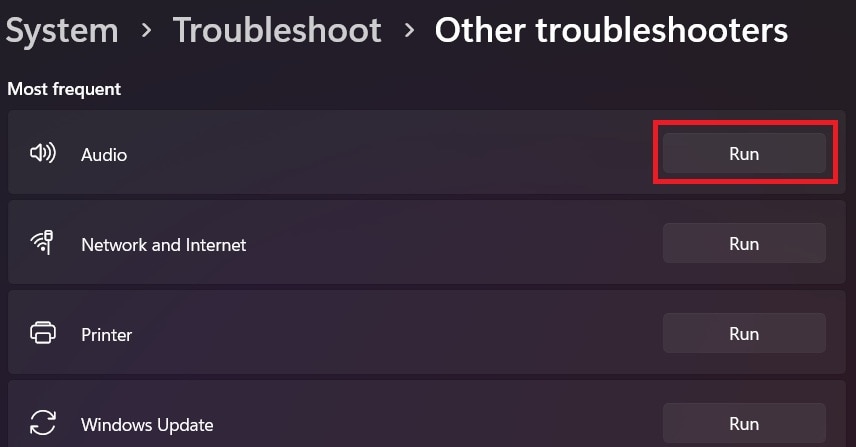
Fix 4. Restart or Reset Windows Audio Services
If your drivers and settings seem fine but the sound still won’t work, the problem could be with Windows audio services. These background processes handle everything related to sound. Restarting them can refresh how audio works on your laptop, especially if the service has stopped responding.
Step 1. Press Windows + R, type services.msc, and hit OK.
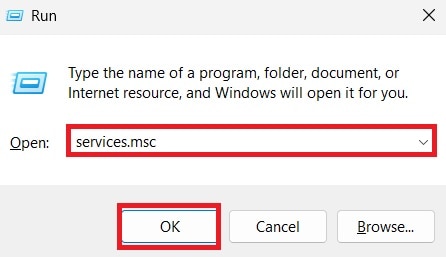
Step 2. In the Services window, scroll down to Windows Audio. Right-click it and hit Restart.
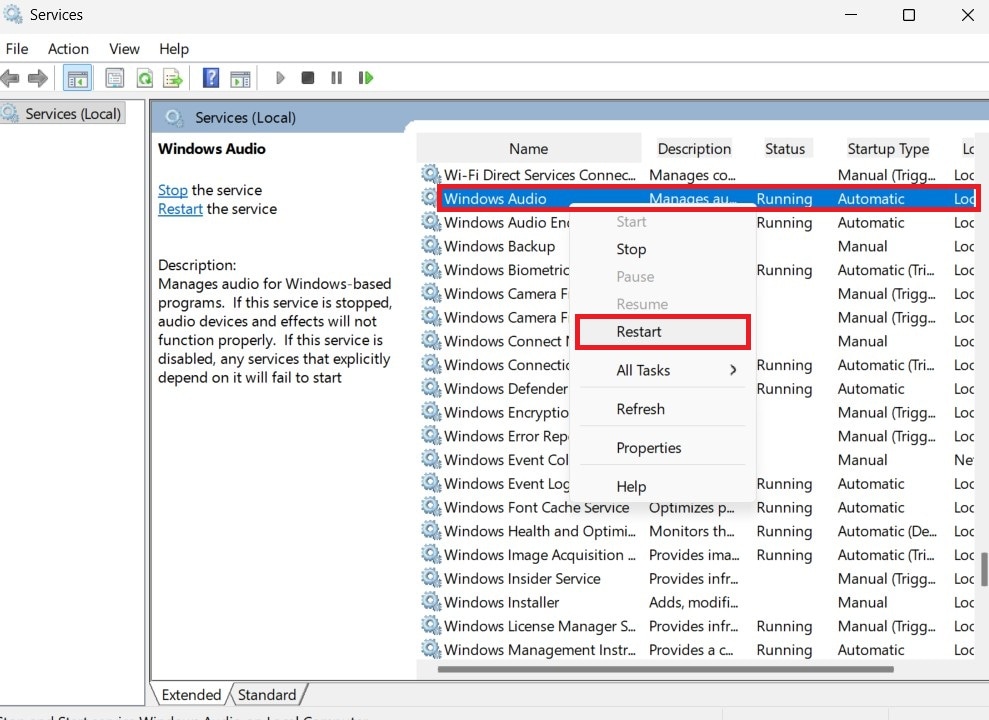
Step 3. Also check Windows Audio Endpoint Builder and Remote Procedure Call (RPC). Restart them if needed.
Step 4. Close the window and test your audio.
Fix 5. Adjust Sound Enhancements & Output Format
Modern laptops often come with audio enhancements meant to improve quality. However, these can sometimes cause distortion, crackling, or even complete silence if they conflict with your system. Adjusting or disabling sound enhancements, along with setting the right output format, can fix cases where audio seems to be present but isn’t playing correctly.
Step 1. Right-click the speaker icon on the taskbar and select Sound settings.
Step 2. Go to the Playback tab, right-click your active device, and select Properties.
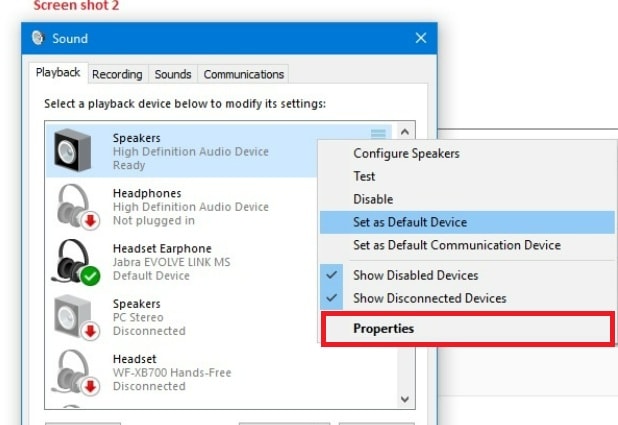
Step 3. Under the Enhancements tab, check or uncheck Disable all enhancements to test sound.
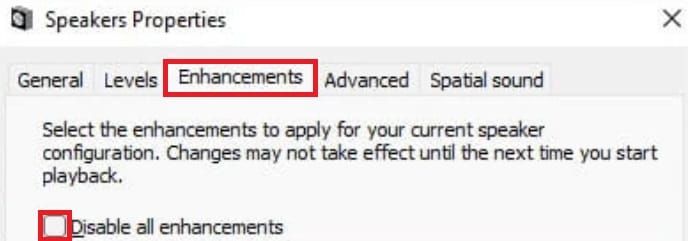
Step 4. Go to the Advanced tab, and under Default Format, try different sample rates.
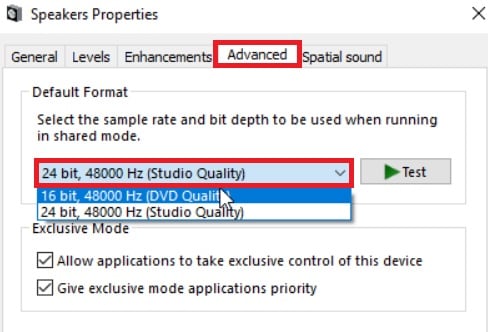
Step 5. Click Apply and test again.
Fix 6. Check External Devices and Connections
What if your laptop’s speakers seem fine but there’s still no sound? The issue might be with connected devices like headphones, Bluetooth speakers, or docking stations. A loose connection, faulty cable, or misconfigured Bluetooth device can all block audio output. Testing with different devices can help confirm whether the issue lies in the laptop or the external hardware.
Step 1. If you’re using headphones or speakers, check the cable connection or Bluetooth pairing.
Step 2. Try plugging in a different pair of headphones or speakers.
Step 3. If using Bluetooth, open Settings and go to Bluetooth & devices, remove the device, and re-pair it.
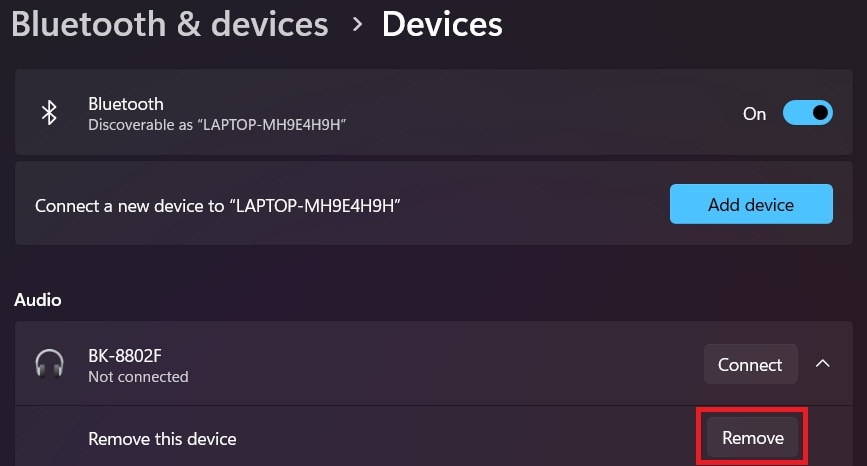
Step 4. For docking stations or USB audio devices, unplug and reconnect them.
Fix 7. Reset BIOS or Perform System Update
If all else fails, the problem might be deeper within the system itself. Resetting the BIOS can restore hardware-level settings, which may fix stubborn audio issues. Similarly, running a full system update ensures you’re not missing important patches that could solve driver conflicts or compatibility problems. While this fix is more advanced, it can resolve sound problems that other methods cannot.
Reset BIOS:
- Restart your Dell laptop and press F2 repeatedly when the Dell logo appears to enter BIOS.
- Once inside, look for the option to Load Optimized Defaults or Reset to Default. Then, click Save & Exit Setup.
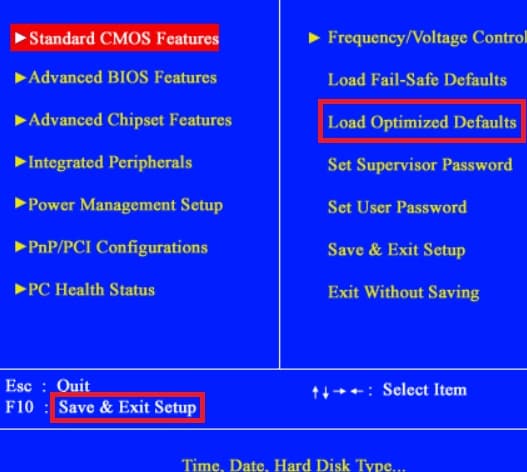
System Update:
- Go to Settings.
- Find Windows Update and hit the Check for updates button.
- Install any available updates and restart the Dell laptop after the update.
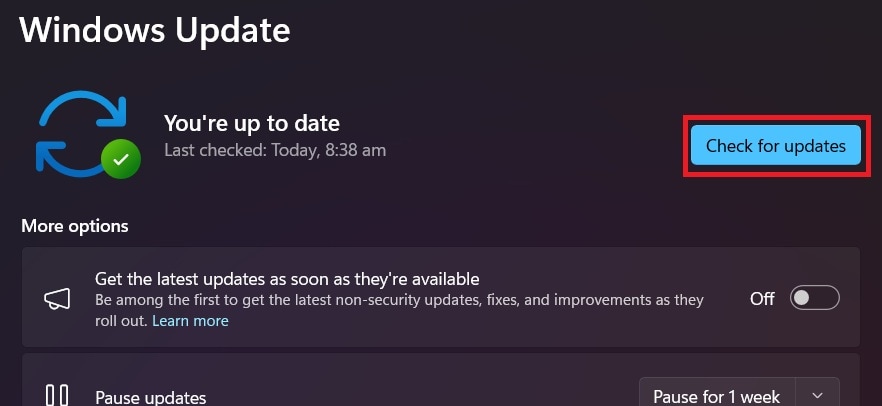
Part 4: What If the Problem Is Inside the Audio Files?
Sometimes you’ll fix your laptop settings, drivers, and services, but the sound still doesn’t work for certain files. When this happens, the issue likely isn’t with the system. It’s with the files themselves. Audio files can become corrupted due to incomplete downloads, storage errors, or system crashes. When this happens, they may play with distortion, missing sound, or not open at all.
Tools like Repairit Audio Repair become useful in these situations. Repairiti Audio repair is a professional tool designed to restore damaged or unplayable audio files. Instead of adjusting your Dell laptop, it repairs the files directly so they can play normally again.
Key Features of Repairit Audio Repair
- Driver issues. Your laptop relies on audio drivers to communicate between the operating system and sound hardware. If these drivers are outdated, missing, or corrupted, your audio can completely stop working.
- Muted or disabled settings. It may sound too simple, but incorrect sound settings are one of the most common reasons behind silent laptops. If the wrong playback device is selected, you won’t hear anything.
- Windows update conflicts. System updates can occasionally disrupt how audio works. A new update may reset settings or cause compatibility problems with your sound drivers.
- Hardware faults. Speakers, headphone jacks, or sound cards may fail over time. This is less common but can’t be ignored, especially if the problem persists across different programs.
- Corrupted audio files. Sometimes the problem isn’t in the laptop at all. If the audio files themselves are damaged, they won’t play correctly no matter what settings you adjust.
Step 1. Open Repairit. Navigate to More Types Repair and start Audio Repair.
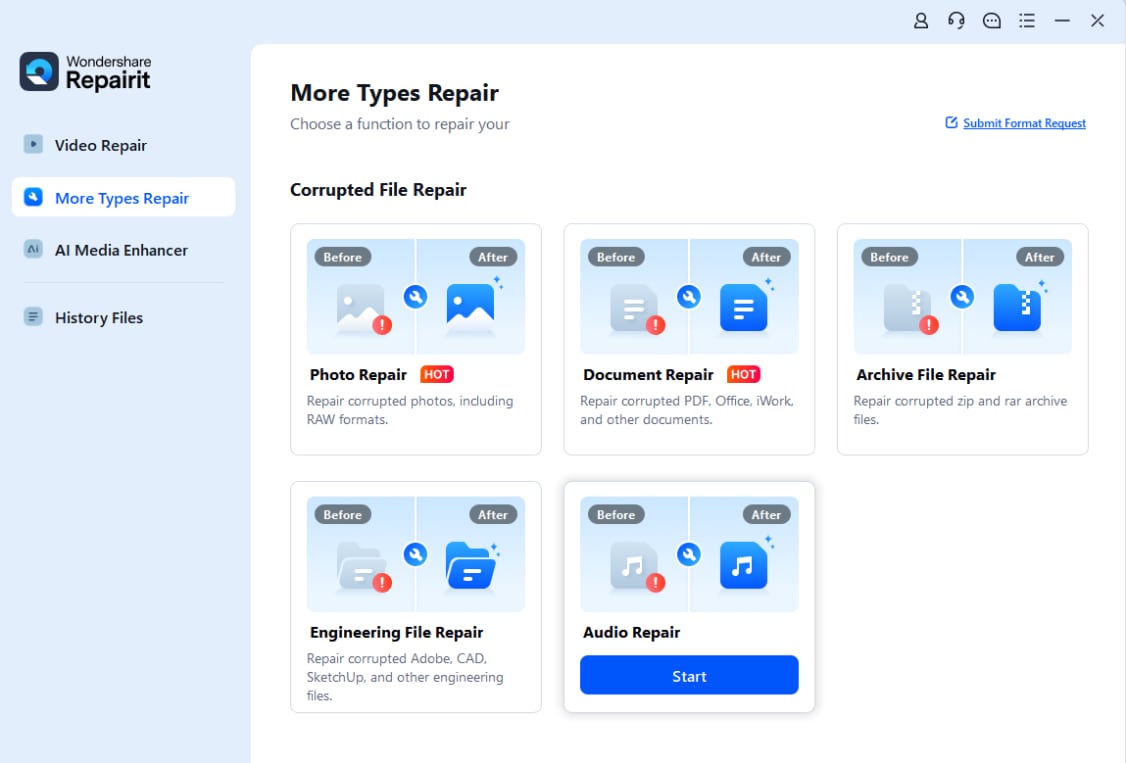
Step 2. Hit +Add to import the corrupted audio files in your Dell laptop you want to repair.
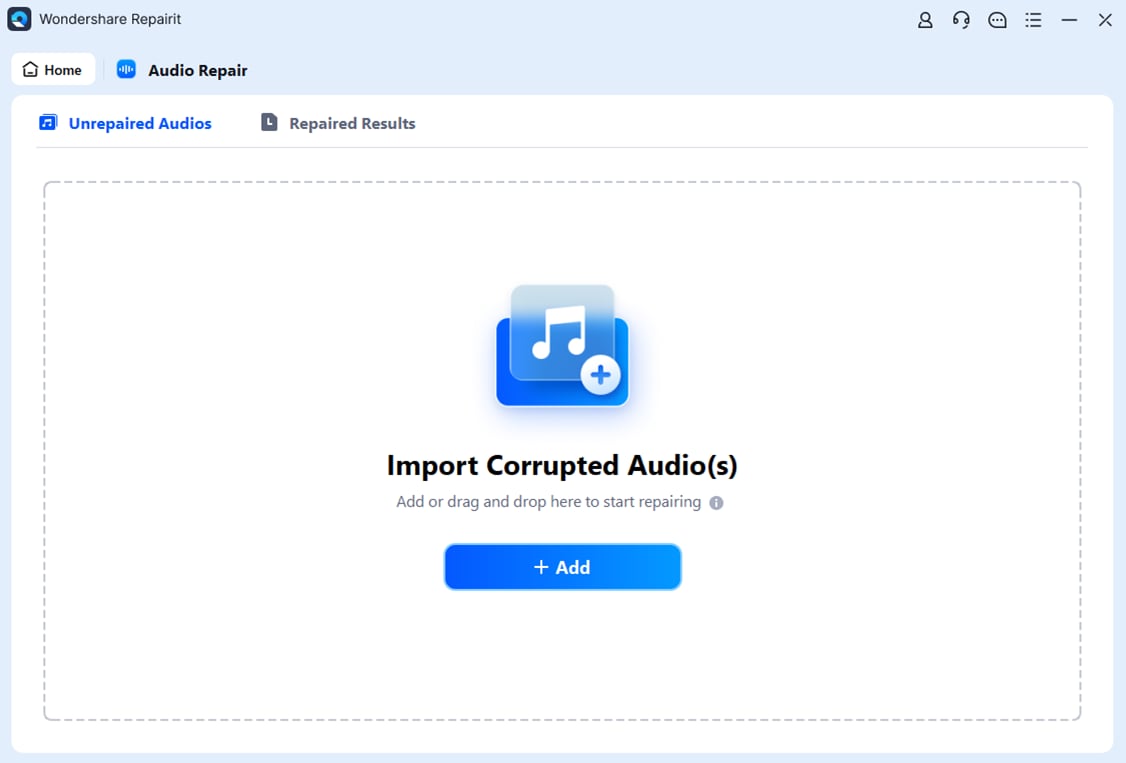
Step 3. Click Repair.
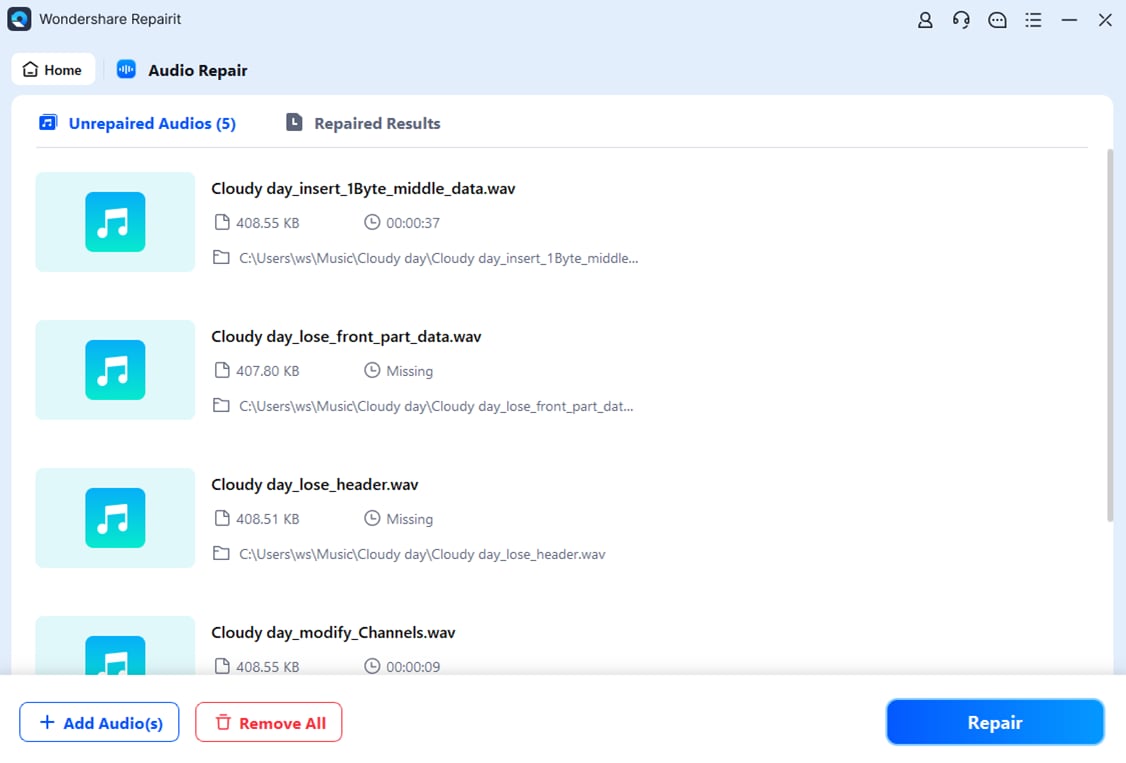
Step 4. Preview the repaired Dell audios to make sure it sounds correct. Save them to your preferred location once you are happy with the results.
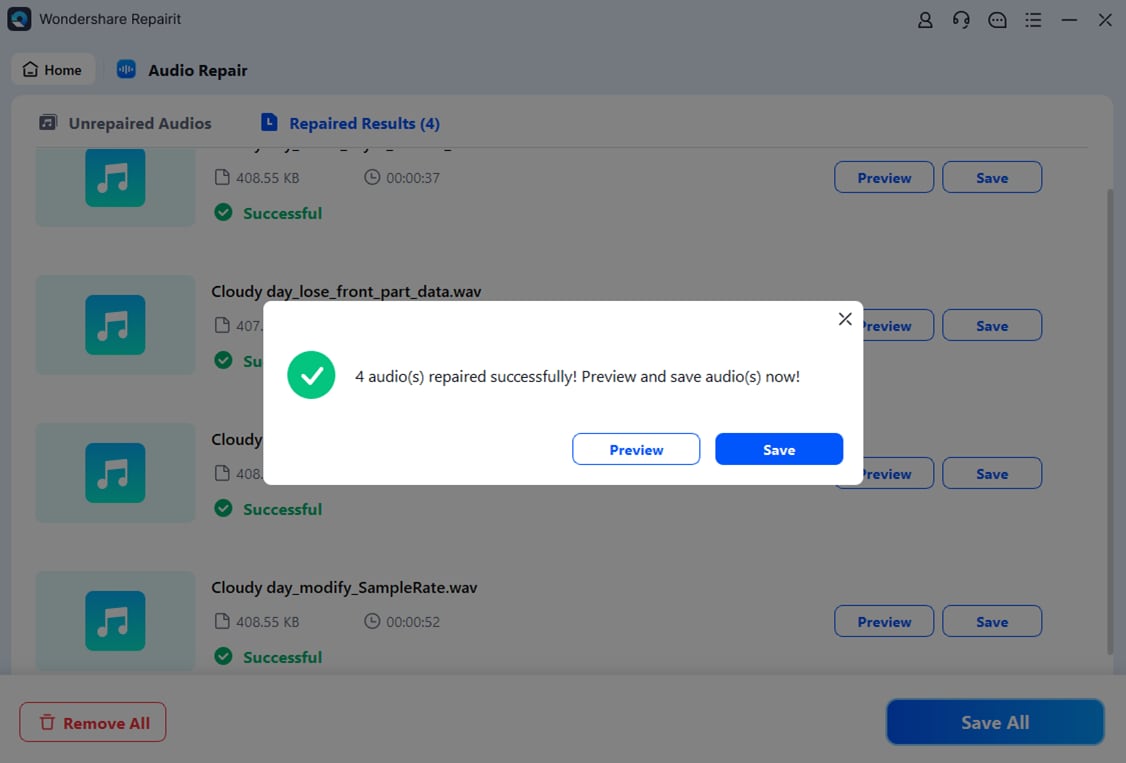
Conclusion
Dell laptop sound not working problems are really frustrating, but most of them can be solved. No matter what causes it, the 7 fixes in this guide cover the most reliable ways to restore sound.
And if the issue turns out to be inside the files themselves, Repairit Audio Repair gives you a way to bring them back to life. By checking both your system and your files, you can be confident that silence won’t last long.
FAQs
-
Why is the audio not working on my Dell laptop?
Your Dell laptop audio may stop working because of conflicts between apps, damaged system files, or hidden power settings that disable sound hardware. Sometimes background apps can take over the audio output, leaving other programs silent. Running a system file check or closing unused apps can help restore normal sound. -
How do I fix no sound on Dell laptop after Windows update?
A Windows update can replace or disable audio components, causing sound to stop. In this case, rolling back the audio driver or reinstalling the Realtek/Dell driver often helps. You can also check optional Windows updates since they sometimes include important audio patches released after major updates. -
Why does my Dell laptop sound keep cutting out?
If your laptop sound cuts in and out, it could be caused by overheating, loose internal speakers, or wireless interference with Bluetooth devices. Overheating can make the system reduce audio performance to protect hardware. Using a cooling pad or switching to wired headphones can help stabilize the sound.


 ChatGPT
ChatGPT
 Perplexity
Perplexity
 Google AI Mode
Google AI Mode
 Grok
Grok

